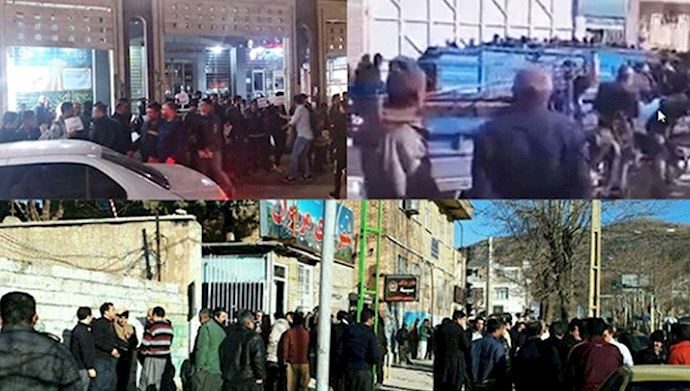
Protests continue across Iran- (PMOI / MEK Iran) activists record strikes in Haft-Tappeh Sugarcane Factory, HEPCO, Azar-Ab, and Aramco. Nurses and workers in other fields have also protested in the last few months.
Unfair labor practices have led to strikes and protests by workers at the Haft-Tappeh Sugarcane Factory, HEPCO, Azar-Ab, and Aramco. Nurses and workers in other fields have also protested in the last few months. All of the workers have a single demand: pay us for our work.
These concerns are not new. Haft-Tappeh workers and nurses all over Iran have protested repeatedly to demand their unpaid wages. Some Haft-Tappeh workers were even imprisoned for going on strike after not being paid for six months. The People’s Mojahedin Organization of Iran (PMOI / MEK Iran), and the National Council of Resistance of Iran (NCRI), have written extensively about the Haft-Tappeh strikes. Teachers, municipal workers, truck drivers, retirees, railway workers, and anyone else who receives a salary is likely to have their wages delayed.
One of the ongoing issues that Iranian workers face is the late payment of wages.
The municipal workers of Loshan (N Iran) haven’t received their wages for 6 months. 👇#IranianWorkersStrike#اعتصابات_سراسری pic.twitter.com/7xJCMLT3PC
— Iran Momentum (@IranMomentum) August 6, 2020
Loushan County Municipal Workers
Municipal workers in Loushan county, Gilan Province protested on November 13 after months of waiting for their wages. One protester told the state-run ILNA, “In the past eight months, we have just received payment for two months, meaning our salaries have been delayed for five months. Two months ago, in his inauguration ceremony, the new mayor vowed that he would pay our paychecks. However, after two months, there has been no action.”
The municipal workers’ dilemma is quite common in Iran. Workers will often protest or go on strike in an attempt to collect their unpaid wages, and a regime official will promise to take action in order to get them to return to work. Once they have stopped their protests, the promise goes unfulfilled. Workers are quick to end strikes because the longer they protest, the more likely it is the regime will send in security forces to violently break the strike and arrest anyone who resists. Striking workers are also threatened with dismissal because labor unions are illegal in Iran.
According to the #MEK, municipal workers in the city of Arvand Kenar, southwest #Iran, held a protest in front of this city’s municipality building, demanding their delayed paychecks. #FreeIran2020 pic.twitter.com/eT9D7pCX7z
— MEK Iran (Mujahedin-e Khalq) (@MEK_Iran) October 19, 2020
Workshop Personnel
Despite the potential consequences, Iranian workers continue to protest and strike for their unpaid wages. On Thursday, November 5, workshop personnel at the Azad-rah Kariz company in Rudbar, Gilan Province protested for three months of unpaid wages.
Lifeguards
Lifeguards on the coast of the Caspian Sea also demanded their delayed salaries. On November 2, 1000, lifeguards protested for their wages.
Serish-Abad Municipal Workers
ILNA reported on October 18 that workers from Serish-Abad municipality, Kurdistan Province rallied in protest of their unpaid and delayed salaries.
https://twitter.com/AliSalari1965/status/1322845485640699905
Nurses
Even some officials have expressed anger about the regime’s failure to budget for its workers. On October Secretary-general of Nursing Homes Mohammad 31, Sharifi-Moghaddam questioned how much of the budgets designated for nurses actually made it to Iranian nurses’ pockets. “Many nurses ask which one of these multi-billion-dollar budgets have been distributed precisely and based on fairness?” he said, according to Isfahan Emrouz’s website.
Crowds of frustrated healthcare workers in Iran have been shaping since late July. Caring medical staff in #Isfahan and #Shiraz demand their wages, saying hospitals are not paying them according to new government approvals that should be $125https://t.co/Mo35Hup9qE pic.twitter.com/1UGviAlZUS
— Iran Freedom (@4FreedominIran) August 2, 2020
and People’s Mojahedin Organization of Iran – MEK IRAN – YouTube
